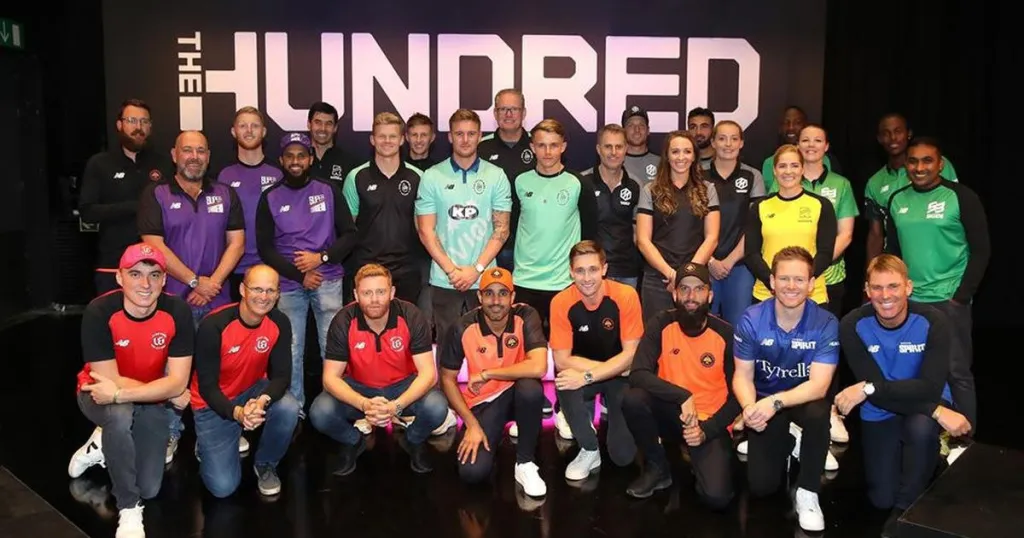As the English and Wales Cricket Board moves forward with the sale of its eight franchises in the Hundred competition, a diverse group of investors is in contention. Among these stakeholders are representatives from four Indian Premier League teams, alongside a powerful consortium comprising executives from leading technology firms such as Google and Microsoft. This group is positioned as a frontrunner to secure a stake in one or more franchises.
Initial reports highlight the participation of owners from the Mumbai Indians, Sunrisers Hyderabad, Lucknow Super Giants, and the GMR Group, which co-owns the Delhi Capitals and has recently acquired a majority share in Hampshire County Cricket Club. The shortlisted investors will have to submit a final financial offer that is binding, with the highest bid securing ownership of each franchise.
The ECB issued its shortlist following consultations conducted in late 2024 with the host counties of the eight franchises and interested investors. This consolidation of potential purchasers reflects a combination of feedback from host counties and the preliminary valuations placed by bidders in early rounds of the auction. While initial bids allowed for offers on all eight franchises, the final shortlist has aligned specific investors with individual teams based on both their preferences and the host counties' wish list.
A critical aspect of the upcoming bidding round is that the ECB has confirmed that all final bids must meet or exceed the pre-set floor valuation price, essentially acting as a reserve price for the franchises. Since the bidding process is currently ongoing, the ECB plans to announce the schedule for the Hundred's 2025 season soon, after which successful bidders will assume control in 2026.
Notably, the two London teams, the Oval Invincibles and London Spirit, have attracted substantial interest from potential buyers. Among the contenders for the Invincibles are the Mumbai Indians and the aforementioned global tech consortium. Lancer Capital, led by Manchester United co-owner Avram Glazer, is also considering a stake in both London sides. Meanwhile, the Manchester Originals, hosted by Lancashire, have drawn attention due to the city's rich footballing legacy and demographics.
The interest in Manchester appears significant, with suitors attracted not only by its sporting culture but also by the opportunity for collaboration. Lancashire County Cricket Club has shown a willingness to work closely with franchise owners, allowing them to operate the cricketing side of their businesses. This flexibility is particularly appealing for IPL franchise owners, as they seek to integrate Indian cricketing strategies into their operations.
On the other hand, the Sun Group, owners of the IPL franchise Sunrisers Hyderabad and the newly established SA20 franchise, are also on the shortlist for three teams in the Hundred. This includes franchises like the Trent Rockets and Northern Superchargers. CVC Capital Partners, the investment group that purchased the Gujarat Titans in the IPL, is similarly interested in the Birmingham Phoenix.
The ongoing bidding process has engaged a spectrum of interest beyond the previously mentioned IPL franchises. Other teams, including Chennai Super Kings, Kolkata Knight Riders, and Rajasthan Royals, had also shown eagerness to acquire stakes in the Hundred franchises. However, as of now, it appears that the Royals and Punjab Kings have not made the final shortlist, and it remains unclear whether Chennai Super Kings and Kolkata Knight Riders have also advanced in this process.
The ECB is targeting a 49% stake sell-off in each of the eight franchises, which are expected to operate as joint ventures with their respective host counties. With an initial pool of over 100 investors expressing interest, the ECB is optimistic that its goal of raising approximately £350 million will be surpassed.
Despite these positive developments, some bidders have shared concerns regarding the projected financial outcomes detailed in the ECB’s investor proposal. Notable cricket figure Lalit Modi has criticized these projections, labeling them as overly ambitious and potentially unsustainable.
As the situation unfolds, it remains to be seen which bidders will emerge victorious in this competitive landscape. The ramifications of these investments could reshape the Hundred and influence the trajectory of English domestic cricket in the years to come, effectively bridging the gap between traditional cricketing systems and the burgeoning market for franchise-based competitions. The ECB’s strategic move towards privatization signifies a pivotal shift in the future of cricket in England, one that will likely draw closer ties with the commercial success already established in leagues like the IPL.
The coming weeks will provide clarity on the competitive landscape as the finalized bids are submitted and evaluated. For avid cricket fans, particularly those in India who closely follow the IPL and its influence on global cricket, these developments offer an intriguing glimpse into the dynamism and growth of the sport. The potential involvement of prominent IPL franchises in the Hundred could set the stage for cross-continental partnerships that may redefine the cricketing ecosystem.

